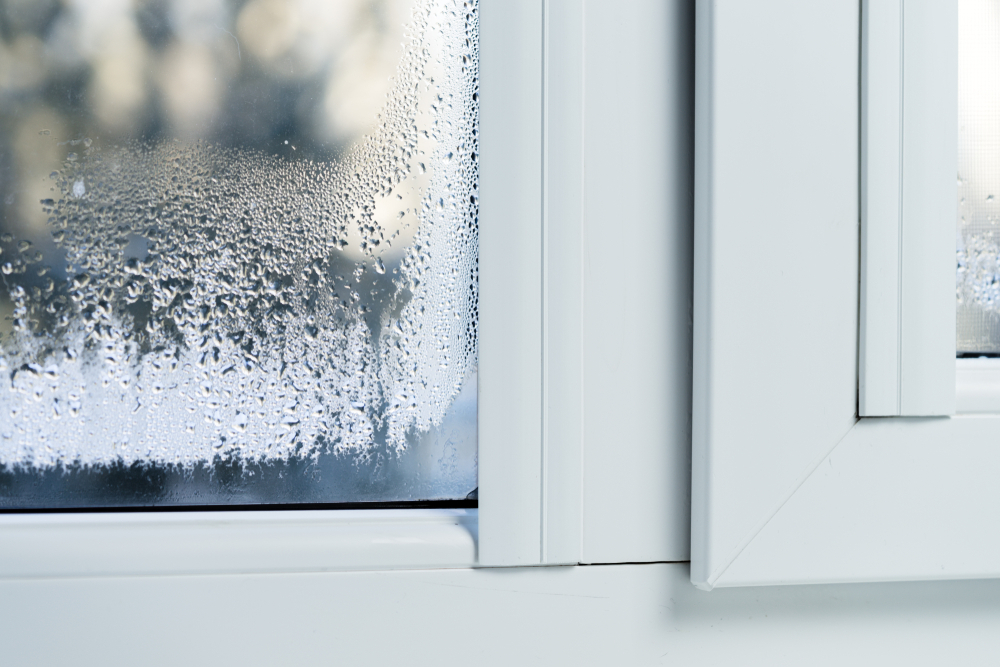When understanding why you have moisture build-up on the inside and outside your windows, it is important to know that this is something that typically happens, but the good news is that you can prevent it! The moisture you are seeing is commonly referred to as “condensation.” Condensation is the result of high humidity, which turns into water drops or fog once it hits a colder surface.
So, you might be wondering… How can I prevent this?
You can minimize the amount and prevent condensation by controlling the humidity inside of your home. However, it is essential to understand that your windows do not cause condensation.
Why Condensation Builds Up
As we previously mentioned, condensation is caused by humidity. During certain conditions, window condensation can occur both inside and outside your home when the water vapor comes in contact with a surface the vapor condenses. Condensation can also occur in the winter if the humidity inside your home is too high.
What is Exterior Pane Condensation?
During the spring and fall, there will most likely be condensation on the outside of your windows when cold nights follow a warm day. Exterior condensation is natural, especially for energy-efficient windows and doors that restrict the airflow between the two panes of glass. In order to prevent exterior condensation, you should open window coverings at night to warm up the exterior glass. You can also remove or trim the shrubs near your windows and doors to help promote air circulation. The condensation will evaporate once it starts getting warm throughout the day.
What is Interior Pane Condensation?
If there are high levels of humidity, then there will most likely be condensation on the inside of your windows. You typically see examples of this when a mirror fogs up after a hot shower, but hot showers can also cause condensation on your windows.
What Causes High Humidity?
All homes have certain levels of moisture because of daily activities such as:
- Cooking
- Laundry
- Washing Dishes
These activities can add up to five pounds of water vapor into the air every day! Plants, heating systems, and humidifiers can also add to the moisture in the air.
If you used to have older windows, you might have noticed condensation was not always a problem. That is because old windows allow moisture to escape through inefficient seals and cracks. Windows today provide you with a more energy-efficient and “tighter” home, which is great for keeping your home quieter, cleaner, and more comfortable. But by sealing your home, you are also keeping moisture in.
How to Reduce Your Home’s Humidity
- Use your kitchen and bathroom exhaust fans during and after you are done showering or cooking
- Use the heater in your home
- Open your windows and doors
- Open drapes and other window coverings
- Use your ceiling fans to keep the air circulating in your home
- Use dehumidifiers
Select Home Improvements is the best choice is you are looking for a home improvement contractor. If you have questions about your project please contact Select Home Improvements. We are here to assist you.
Call us at (855) 995-2233.


